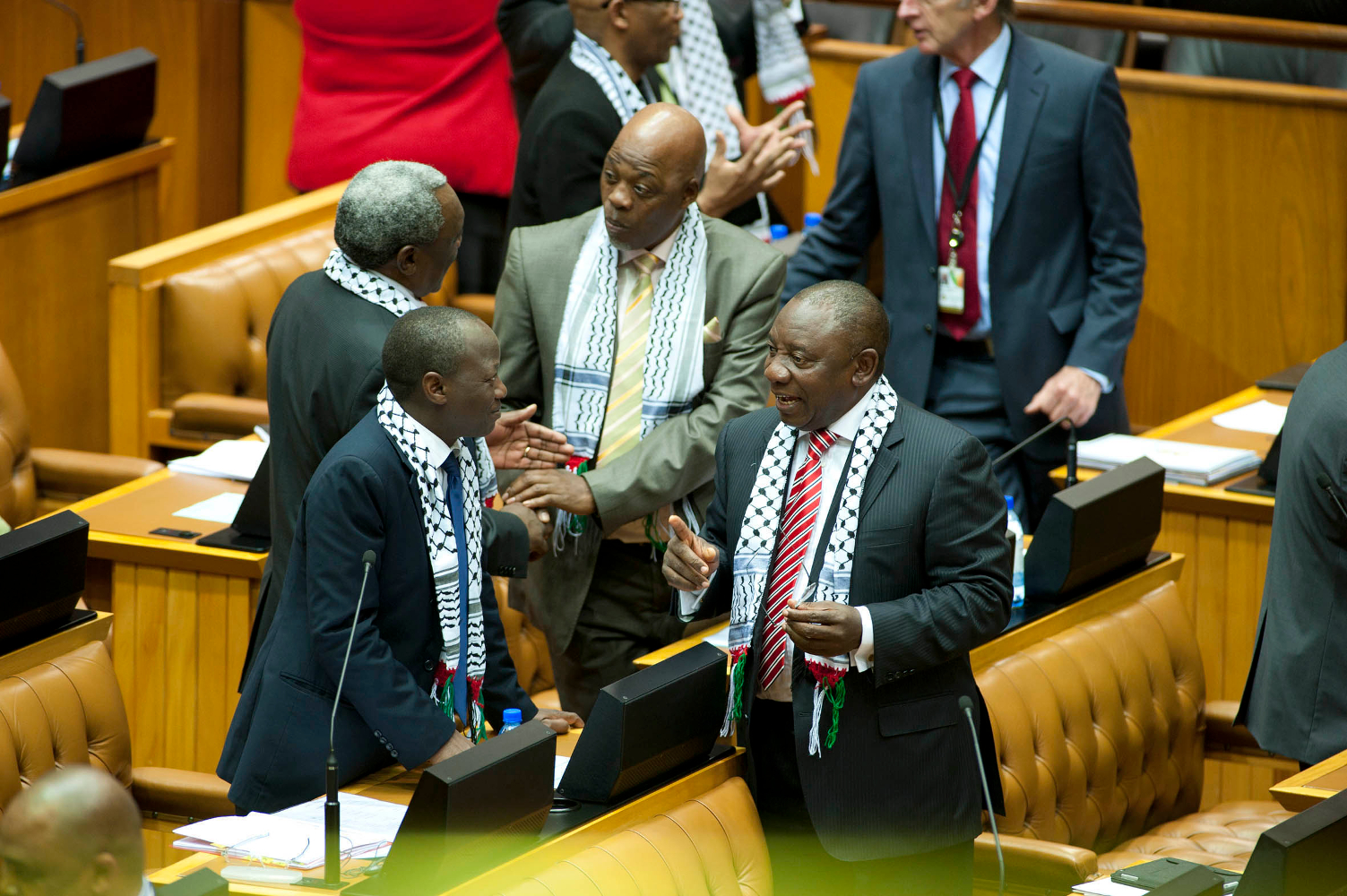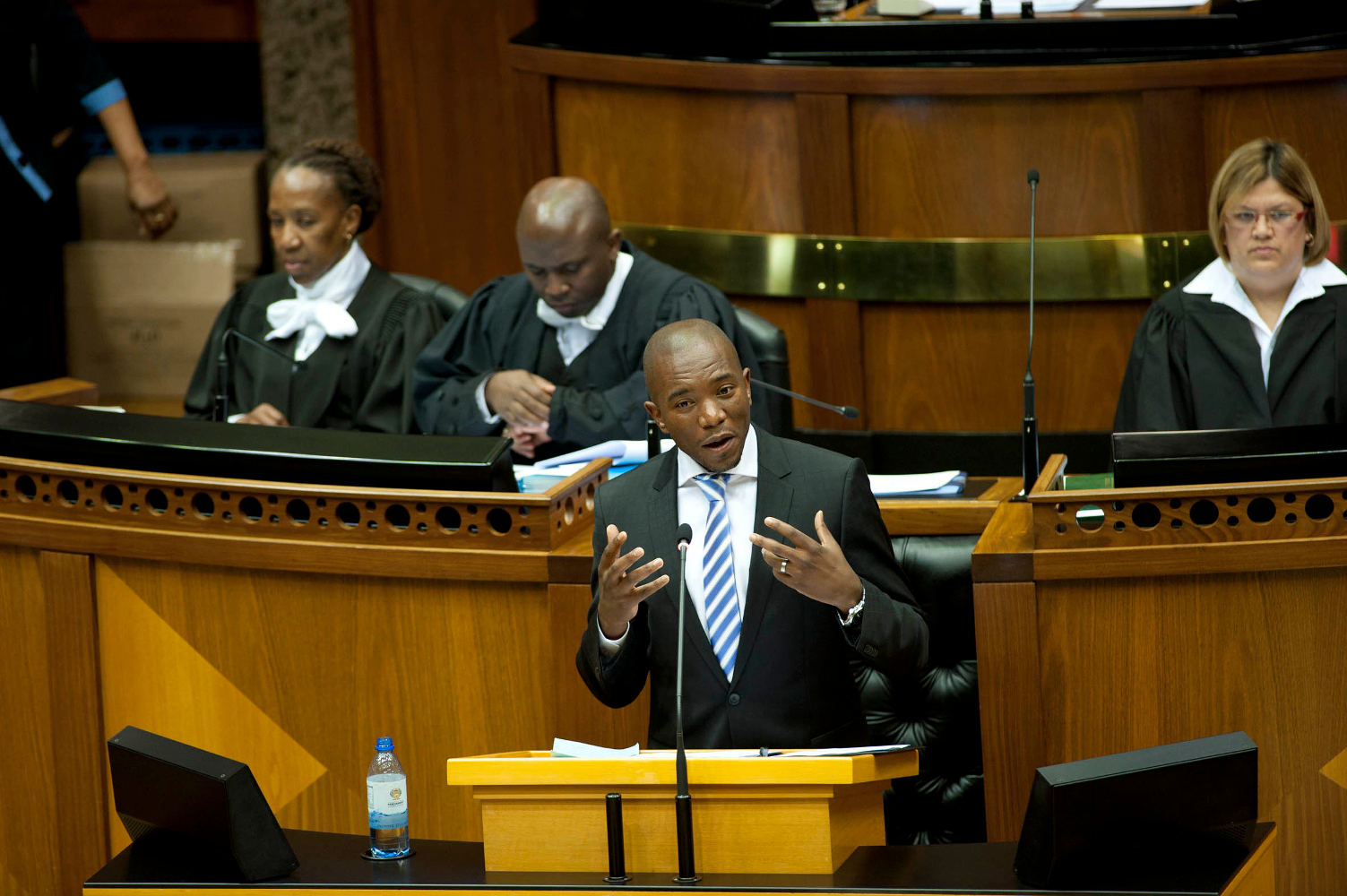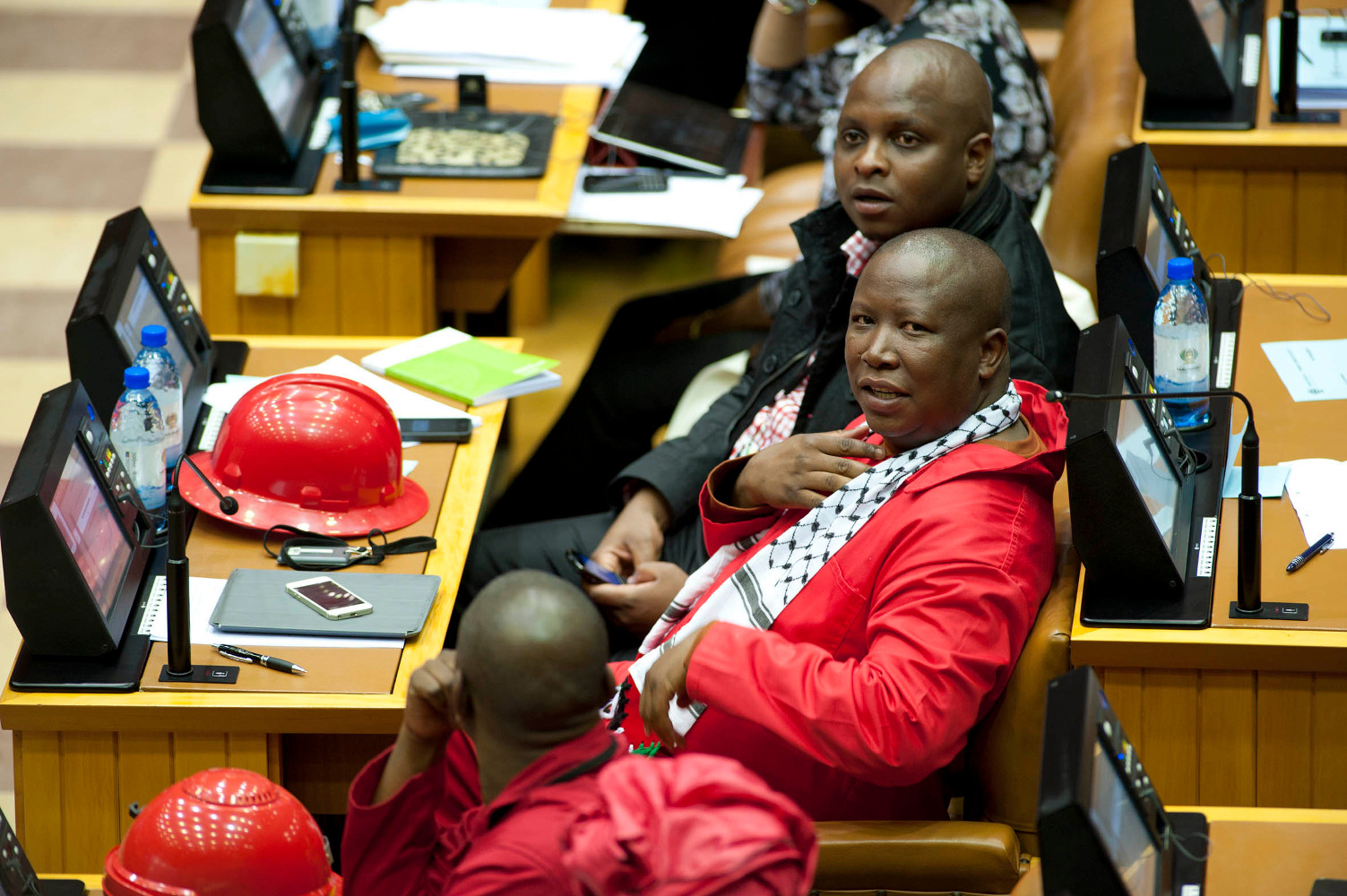Service delivery will be the priority of the government’s programme over the next year and President Jacob Zuma has stressed the need for efficient public service to meet government’s goals.
It is not only the speed with which services are delivered that Zuma emphasised, but the manner in which public servants deliver the services.
“We will assess the manner in which enquiries and complaints from the public are handled, the courtesy and friendliness of staff and the speed with which members of the public are attended to,” Zuma told Parliament on Wednesday.
Zuma was delivering the presidency budget vote for the 2014/15 financial year. He and also laid out the plans for the presidency during this period.
His speech was more focussed and pointed than the State of the Nation Address (Sona), which he delivered in Parliament just over a month ago.
Building relationships
Zuma revealed that the presidency would also seek to build relationships with a range of sectors including small businesses, the media and higher education institutions through presidential working groups for the sake of development and progress. There would also be a return of the presidential izimbizo to promote two-way communication with the public.
He said the journey towards prosperity and job-creating growth involved radical change in government planning, implementation and monitoring.
“We will continue to prioritise five key areas this term – education, health, rural development and land reform, the fight against crime and corruption, as well as creating decent work,” said Zuma.
The president, following up on his announcement during Sona last month, that the government was planning to heighten energy generation capacity revealed an “energy security Cabinet sub-committee that would oversee the development of the energy mix”.
The sub-committee will comprise representatives from the departments of energy, international relations and co-operation, public enterprises, finance, state security, trade and industry, economic development, mineral resources, environmental affairs and defence. It will explore various options including nuclear power, gas, solar, wind, coal, hydro power and fuel refineries, said Zuma.
He also revealed that the president’s co-ordinating council will be used to build and support local government.
PCC to improve output
Zuma said the government’s co-operative governance framework provided for the existence of a President’s Co-ordinating Council [PCC], a mechanism that brings together the presidency, crosscutting ministries, premiers and the South African Local Government Association, to discuss issues affecting the three spheres of government.
“We want to improve the performance and output of the PCC, and in particular, utilise the structure more effectively to build and support the local government sphere,” he said.
Zuma emphasised the importance of an efficient public service.
“To achieve the goals of a better society, we need a professional, people centred, effective, efficient and disciplined public service,” he said.
He announced that through the department of planning, monitoring and evaluation, the government would keep track of progress made by departments in improving government performance, and also in promoting caring and responsive governance.

He revealed that with Deputy President Cyril Ramaphosa, he has been meeting with Cabinet ministers, their deputies and directors general, to discuss the priorities and action plans of each department.
The exercise will culminate in the signing of performance agreements by the president and each minister.
Quality of service
Zuma said the ministers would in turn conclude delivery agreements with partners, who would work with them to achieve their goals. These partners will include colleagues in the provincial executive councils.
He said beyond the major projects and work of departments, they would also monitor the quality of services to people.
“We will assess the manner in which enquiries and complaints from the public are handled, the courtesy and friendliness of staff and the speed with which members of the public are attended to.”
Zuma said the Batho Pele [People First] citizen care programme was being revitalised and would be mainstreamed in every department in order to improve performance and services to the public.
The performance of the presidential hotline and other call centres serving the public in various departments would continue to be useful barometers of how government relates to the public.
Communication
Zuma added that a new priority this term would be the mainstreaming of communication in government departments.
In this regard, he established an inter-ministerial committee on information and publicity. This would be led by the Minister in the Presidency for Planning, Monitoring and Evaluation Jeff Radebe. “The committee will promote and co-ordinate communication and marketing within government,” he said.
The presidency would also lead the government with izimbizo, door-to-door campaigns and other mass-based platforms to promote communication with people.
The presidential izimbizo programme was first launched under former president Thabo Mbeki’s government, where members of the public would interact directly with government on issues that troubled communities. But the programme was abandoned with Mbeki’s departure from office.
Zuma also announced plans by the presidency to institutionalise partnerships with various stakeholders by reconstituting the presidential working groups to promote partnerships for development and progress.
The presidential business working group will bring together chairpersons and chief executives of major companies in the country, as well as key ministers in the economic sector, to discuss the performance of the economy.
Nedlac working group
A joint working group that will bring together the social partners represented at National Economic Development and Labour Council – business, labour, government and the community sectors – would be established to seek joint solutions to challenges facing all sectors.
“We have already placed some items on the agenda of this working group, such as the minimum wage proposal and the impact of strikes with a long duration,” said Zuma.
The presidency was also finalising plans to launch a presidential working group on communication and the media, which would bring together the government and organisations from the community and commercial media sectors.
Afterwards, Ramaphosa delivered his first speech in the National Assembly in 18 years following his departure from Parliament in 1996 to the private sector.
“While much has changed inside this house since I last had the privilege to stand here, most remarkable are the changes that have taken place outside this house – on the streets of South Africa, in our townships and villages, in our classrooms, in our clinics, in our places of work,” he said.
Breakthrough
Ramaphosa called on parties represented in Parliament to continue working together if South Africa is to realise its socio-economic goals.
“This is how we achieved our democratic breakthrough in 1994. As parties came together to negotiate and eventually agreed on the Constitution, they did so knowing full well that we needed a social compact that addressed the imbalances of the past.
“At the same time they imagined a future society, characterised by the values of non-racialism, non-sexism, freedom and prosperity for all … Working together has become part of our DNA. It is what unites us, what makes us exceptional,” said Ramaphosa.
He said that the government would continue to engage various sectors of society to detail the contribution they can make to the implementation of the national development plan.
“To this end, I have met the [chief executives] of major banks who have committed to develop concrete implementation plans that include funding options for our infrastructure programme.
“Mr president, perhaps this is the time to call for an end to the so-called investment strike and I am confident that the private sector will respond favourably when we meet them at the presidential big business working group,” he said.
‘Lead or step aside’
Like his predecessor Lindiwe Mazibuko, Democratic Alliance parliamentary leader Mmusi Maimane called on Zuma to step up and show leadership.

Maimane charged that without bold leadership, the National Development Plan was being stalled by its enemies who are in alliance with the ruling ANC.
“I therefore put it to the honourable president: at a time when our challenges are enormous, there are but two options. Mr president, lead or step aside … ”
Maimane said for Zuma to lead would be to take the difficult and bold decisions necessary to return South Africa to the path of greatness and to the land of opportunities for all and to take one’s cue from Parliament, not the parliament that is Luthuli House.
“There is a very important difference,” he said.
“When the honourable president fails to lead, but is rather simply a political captive being led, then it is time to step aside,” he said.
Maimane went on to present a to-do list for Zuma, which he said would prove his leadership capabilities.
Medical attention
A subdued looking Economic Freedom Fighters’s (EFF) leader Julius Malema began his address by congratulating the ANC MPs for coming out openly in support of the Palestinian struggle.

Malema then called on ANC MPs to put pressure on Zuma to expel the Israeli ambassador to South Africa.
He then spoke about his party’s upcoming first birthday and how the other political parties had underestimated the support it enjoys.
He warned that the EFF was a government in waiting. “If anyone still doubts that today, that person needs … medical attention,” said Malema.